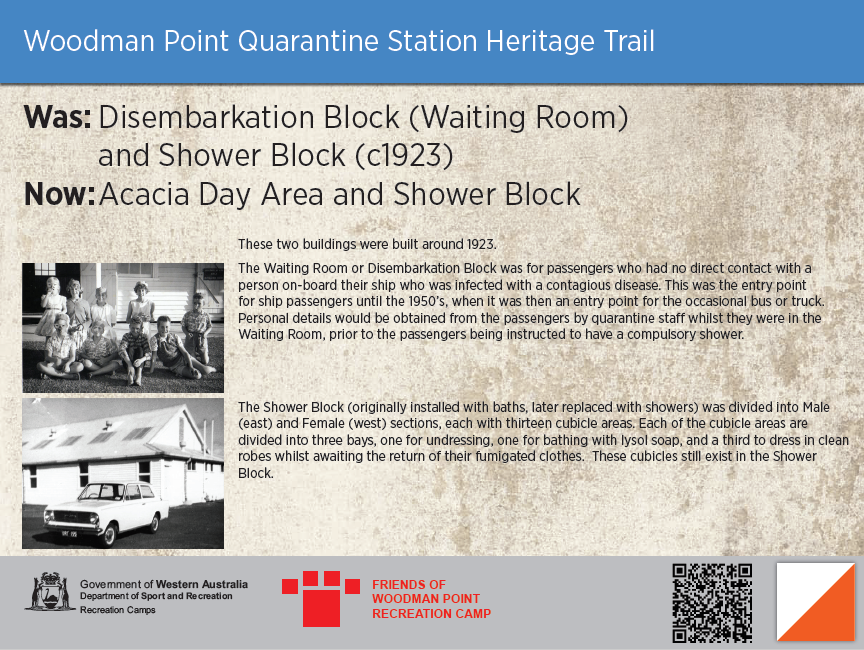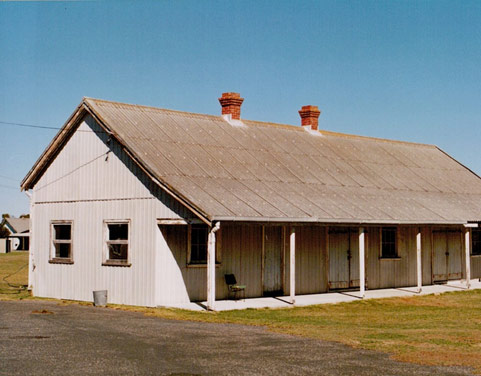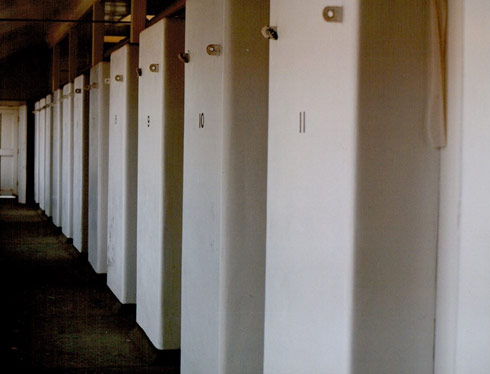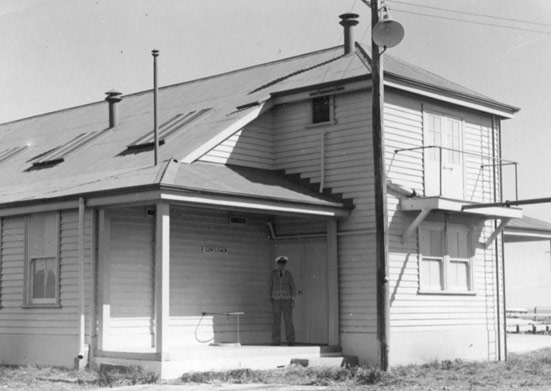
Disembarkation Block and Shower Block
Waiting Room
The ‘healthy’ passengers and crew from ships under quarantine, still needed to stay on site for a period of time, up to three weeks in some cases, to make sure they didn’t show any signs or symptoms of disease before being allowed to leave the station. These people needed to be counted, registered and assigned accommodation quarters. This happened in the Waiting Room or Disembarkation Block, located near the start of the main jetty. Following this, they were sent to the shower block for to get clean and disinfected.
Passengers who were sick were moved directly to the Isolation Hospital. Any passenger who had been in near the sick passengers whilst onboard the ship, were called ‘Contacts’, and they were moved directly to the Observation Wards in case they developed symptoms.

Shower Block
Until the late 1800s, the importance of human sanitation wasn’t known. Often passengers wore the same set of clothes for the entire journey by sea, washing them in seawater rarely, if at all. Most people didn’t wash themselves either, and instead of toilet paper, people used a rag dipped in vinegar to clean themselves up, which was hung up for the next person to use.
If you think that was bad, the older ships rocked badly and most people suffered terrible sea sickness sometimes for weeks, creating a pretty big mess throughout the ship. Add to that the fact that there were some pretty nasty diseases on board, you can imagine how smelly and horrible the conditions were for the passengers.
When they arrived at the quarantine station, everyone and everything needed a thorough clean. The shower block consisted of two sides, for males and females, each with 13 concrete cubicles (originally installed with baths, later replaced with showers). Each of cubicle was divided into three bays: one for undressing, one for bathing with Lysol soap, and a third to dress in clean robes whilst awaiting the return of their fumigated clothes. These cubicles still exist inside the Shower Block.


More information
- Follow and interact with the Heritage Trail on the NaturePlayWA App.

- Heritage content compiled by Woodman Point Recreation Camp, in collaboration with the Friends of Woodman Point Recreation Camp Inc.
- Images sourced from archival and personal collections held by the Friends of Woodman Point Recreation Camp.
- ‘Western Sentinel: A history of the Woodman Point Quarantine Station, Western Australia 1852-1979’ by Ian Darroch, is available for purchase from Woodman Point Recreation Camp. Proceeds to the Friends of Woodman Point Recreation Camp to conserve and promote the heritage of the Quarantine Station.